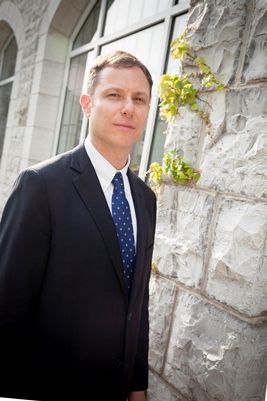
David Kerzner, Law’90, PhD’15, has used his doctoral research at Queen’s Law to make a timely contribution to a subject in the public spotlight. He is the coauthor of a new book,International Tax Evasion in the Global Information Age, focused on tax information exchange agreements (TIEAs). Called “an invaluable resource” by retired Supreme Court Justice Marshall Rothstein, the text was published by Irwin Law last summer and is now being published internationally by Palgrave Macmillan in London and by Springer Publishing online.
Thanks to a series of banking scandals and leaks, most recently the publication of the Panama Papers, this topic has featured heavily in the media. “Illegal tax practices such as tax evasion cost governments billions of dollars in lost revenues,” explains Kerzner. “The Panama Papers solidify the conclusions of this book that the OECD (Organisation for Economic Co-operation and Development) has been papering over the challenges posed by exchange of information. They are evidence of flaws in the strategies to combat tax evasion, strategies that governments like Canada’s have come to rely on.”
“TIEAs are typically negotiated between an OECD country and countries that are sometimes labelled tax havens,” clarifies Professor Art Cockfield, Law’93, Kerzner’s PhD supervisor at Queen’s. However, due to high-profile tax leaks, the 2008 financial crisis and an aggressive U.S. foreign tax evasion strategy, countries are additionally adopting agreements to automatically share large data sets of taxpayer information.
Kerzner’s book approaches the topic from two perspectives. It is policy-oriented in that it helps governments understand how to fight offshore tax evasion, but it also provides a technical discussion of relevant Canadian and U.S. international tax laws and administrative practices. “This study,” says Cockfield, “contributes in a significant way both to the ongoing policy debate and to a tax practitioner’s ability to effectively advise clients.”
Kerzner is certainly in a position to offer both a theoretical and practical examination on the topic. In addition to his doctoral work, he has been an international tax practitioner for 24 years, is a member of both the Ontario and New York State bars and was a sessional instructor at Queen’s Law from 2008 to 2011. His co-author, David Chodikoff, a partner at Miller Thomson LLP and leading scholar in tax law, contributed chapters on enforcement of international tax law and voluntary disclosures in Canada.
“Our conclusions reveal why automatic exchange of information is not the magic bullet that the OECD claims it to be,” says Kerzner. “It shows why countries like Canada need to be resilient, innovative and aggressive in adopting new homegrown strategies to defeat tax cheats.”
Visit http://kerznerlaw.com/ to read more about David Kerzner or to order a copy of his book.